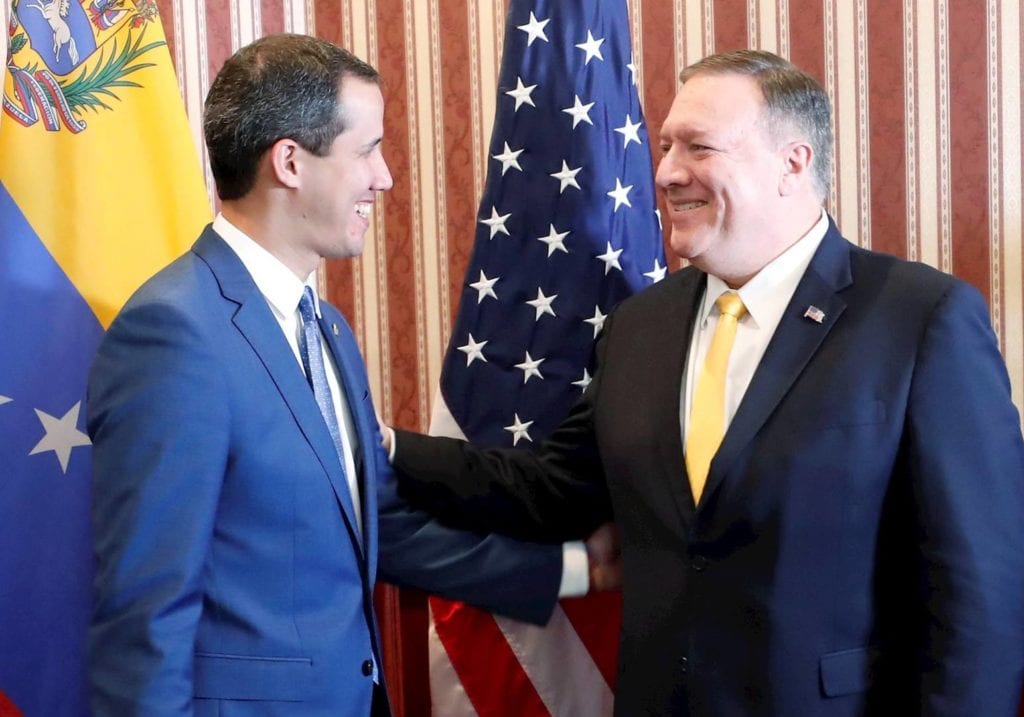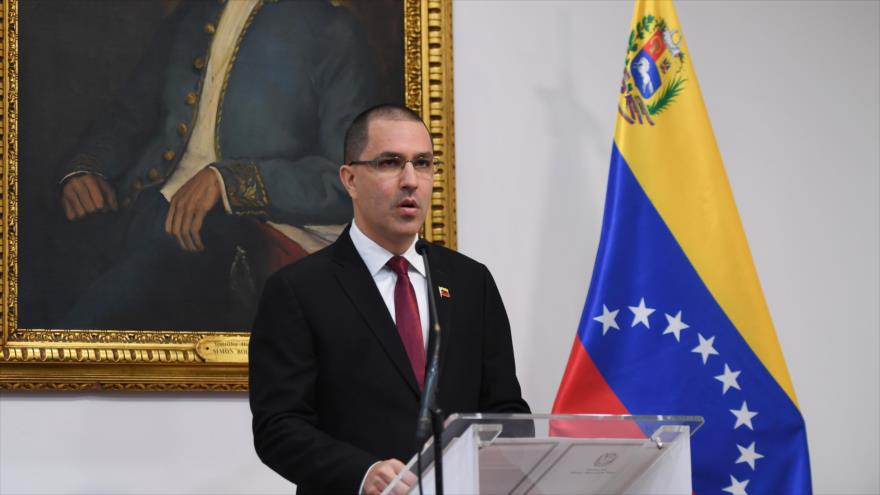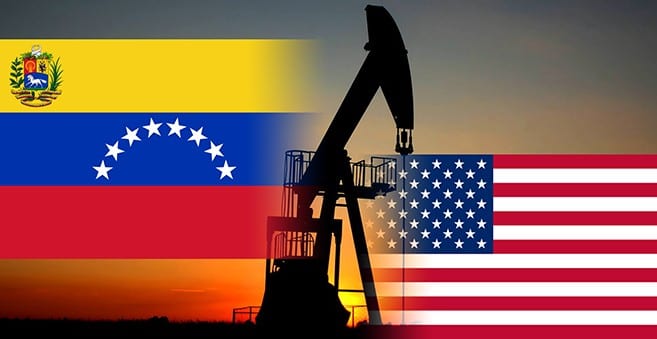On April 1, the Ministry of Foreign Affairs of the Bolivarian Republic of Venezuela criticized and rejected Washington’s proposal to create an interim government in the country and hold elections for the subsequent lifting of the US sanctions. What kind of “deal” does the White House offer to Nicolas Maduro? And how does the resolution of the conflict between the United States and Venezuela affect the regional configuration of forces?
On March 31, 2020, at a briefing at the US State Department, Secretary of State Michael Pompeo announced the idea of forming an interim government in Venezuela, which would organize “transparent” elections, which, if they were honest, would be followed by the lifting of the US sanctions. According to the plan proposed by the White House, elected members of the National Assembly representing both sides of the conflict in Venezuela would create an appropriate state council that will aim to play the role of the interim government in the Latin American country before the presidential and parliamentary elections, which, as the US State Department hopes, will go through 6-12 months.

As the Secretary of State emphasized, if the conditions of the project are met, including the withdrawal of foreign security forces and the recognition of elections by foreign observers as honest and free, then all remaining Washington sanctions will be lifted. Another prerequisite put forward by the White House is that the president of the interim government will not participate in the elections. Michael Pompeo expressed the hope that the current Venezuelan head of state, Nicolás Maduro (Spanish – Nicolás Maduro Moros) and the opposition leader Juan Guaidó (Spanish – Juan Gerardo Guaidó Márquez) will recognize this government as the supreme authority in transition in the country.
Washington’s proposal, at first glance, seems very logical and “generous” from the White House. On the other hand, such a deal is very ghostly. On April 1, official Caracas abandoned such an action plan. The head of the Foreign Ministry of the Bolivarian Republic, Jorge Arreaza (Spanish – Jorge Alberto Arreaza Monserrat), in response to a statement by Michael Pompeo, accused the United States that the White House administration still wants to manage Venezuela through a “fake” government controlled by it. In addition, the Venezuelan Foreign Minister decided to contact with the Austrian Chancellor Sebastian Kurz on his “Twitter” account, approving the offer of the US Secretary of State. Arreaza called the young 33-year-old politician “misguided”, ignoring the foundations of international law and indulging in the “miserable” sanctions policy of the US President Donald Trump.

The reaction to the statement by the US Secretary of State has again split Latin America and “shaken” the regional configuration. Neighboring of Venezuela, Colombia, supported the Washington’s initiative, Cuba, on the contrary, said that the sanctions should be lifted by the United States without any conditions. The opposition leader Guaidó spoke “in favor” of Pompeo’s proposal. The official Caracas appealed to the entire world community and complained about the White House’s encroachment on the sovereignty of the country. A number of international experts have already regarded the transaction proposed by the US Secretary of State as an ultimatum.
It is worth noting that the White House’s proposal to resolve the “Venezuelan plan” was due to the collapse of the market after the failure of the extension of the “OPEC+” agreement (OPEC countries, plus Russia, Kazakhstan and Azerbaijan) to limit oil production and reduce global consumption. As a result of the organization’s last meeting in March and the raging coronavirus pandemic, circumstances force Venezuela to sell oil at $ 5 per barrel. Subsequently, due to the US sanctions on its trading subsidiaries, the Russian company “Rosneft” decided to leave all projects in Venezuela. For several years, the “Rosneft” provided financial support to the regime of Nicolas Maduro after China began to postpone the transfer of money tranches, according to which an agreement was reached back in 2014. Then the Russian oil corporation, reaffirming its obligations to the successor of Hugo Chavez (Spanish – Hugo Rafael Chávez Frías), carried out the Venezuelan state-owned company “PDVSA” (Spanish – Petróleos de Venezuela, SA) prepayment for crude oil and petroleum products for the period of 2014-2016. It was then that the Bolivarian regime began to feel a shortage of currency due to falling oil prices.
As part of a difficult dilemma, Moscow was forced to make a decision on the future activities of the “Rosneft”: either continue to use it in the Bolivarian Republic for geopolitical purposes, or strengthen its position as a global oil supplier. The Kremlin chose the second option and withdrew the “Rosneft” from the Latin American country. Venezuelan assets of the enterprise were transferred to the Russian holding “Rosneftegaz” in the form of shares worth $ 4 billion. In addition, to work in Venezuela, the Russian government created the state-owned company “Roszarubezhneft”, which the United States is actively trying to collect information about.

Of course, the departure of the Russian corporation “Rosneft” prompts Washington to return to active attempts to establish a government-controlled government in Venezuela. Nevertheless, the “Rosneft’s” departure does not mean that Moscow refused to support official Caracas, which was confirmed during a meeting on March 31, 2020 between the Russian ambassador and the current head of state of Venezuela. After the meeting, Nicolas Maduro announced that he had received from the Russian Ambassador Sergey Melik-Bagdasarov a message from the Russian President Vladimir Putin about solidarity with the Bolivarian government and its readiness to provide all necessary support to Venezuela.
According to international observers, the White House needs control of Venezuela for two reasons. First of all, in order to achieve energy independence, which, in turn, will untie the US “hands” on protectionism in global energy markets. According to official statements, today American oil refineries are tuned for heavy oil, which Venezuela, which has its huge reserves, is producing it. On the other hand, the possibility that Washington will bring a government under its control to the Bolivarian Republic gives the Trump administration hope for a gradual strengthening of the US position in Latin America, which will significantly affect the regional configuration of forces.


